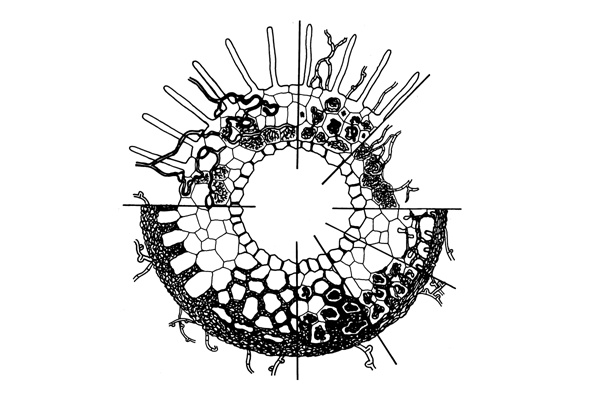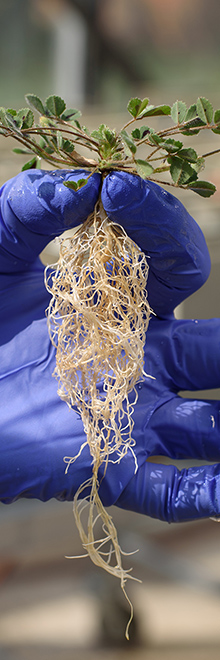Mycorrhiza
Mycorrhizal fungi are an inherent part of all ecosystems, including both natural and agricultural ones. The term mycorrhiza which has its origin in Greek words mykes (= fungus) and rhiza (= root) describes a mutualistic association between plant roots and a specific group of soil fungi.
This symbiosis can be characterised by a bi-directional movement of nutrients where carbon flows to the fungus and inorganic nutrients move to the plant. Root colonisation by mycorrhizal fungi can considerably affect the growth and health of host plants that benefit e.g. from improved nutrient uptake, higher resistance to drought, heavy metals or pathogens. Several different types of mycorrhizal associations can be distinguished, involving different groups of fungi and host plants and characterised by distinct morphology patterns.

Monotropoid
mycorrhiza
Arbutoid mycorrhiza
Ectendomycorrhiza
Types of mycorrhiza in root cross-section
Used with kind permission of the author. Gryndler et al. - Mykorhizní symbióza. O soužití hub s kořeny rostlin. Academia, Praha, 2004 (in Czech).

